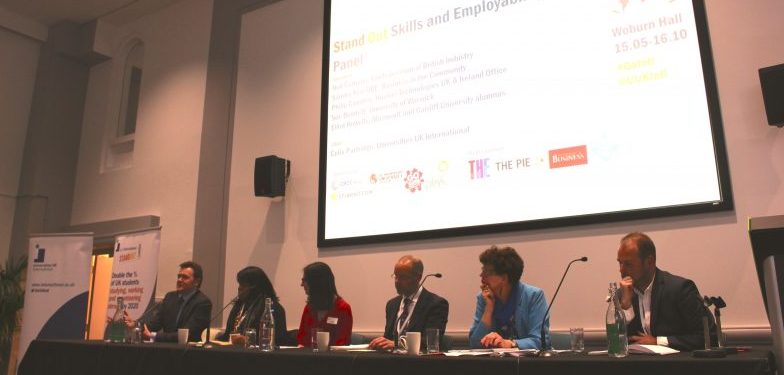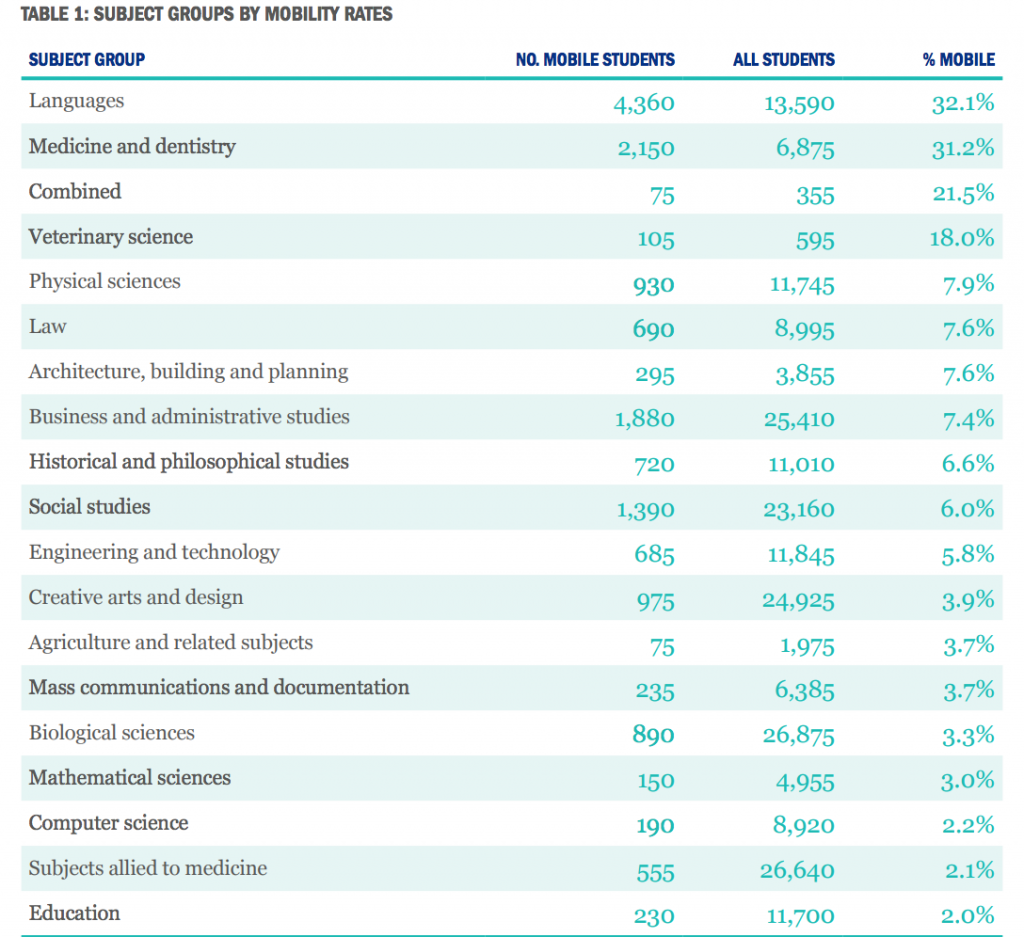While significant work is needed to further increase the number of UK students going abroad, a more diverse range of undergraduates are choosing to take on a period of mobility, the fourth annual UUKi Gone International report has revealed.
News and business analysis for Professionals in International Education
Have some pie!
UK: Slow uptake in study abroad, but student profile increasingly diverse
 The conference featured a panel of key figures in the education and businesses sectors. Photo: The PIE
The conference featured a panel of key figures in the education and businesses sectors. Photo: The PIE The report was launched at UUKi‘s 2018 Go International conference in London, which focused on strategies the UK higher education sector is using to address the deficit in outward student mobility.
“To go abroad for a year is a huge investment…so going for just a few weeks can be a gentle way of introducing students to mobility”
The conference also featured a panel of key figures in the education and businesses sectors, who highlighted the importance of extending mobility opportunities to all students.
Currently, just 6.6% of UK-domiciled students go abroad as part of their studies.
However, in 2017, UUKi launched a campaign to help double the share of full-time undergraduates taking international placements during their degree to 13.2% by 2020.
According to the findings of the latest Gone International report, a total of 16,580 UK-domiciled graduate respondents had at least one period abroad of one week or longer as part of their full-time, undergraduate first degree.
While the percentage of students who had a period of mobility during their studies was near identical to that of the 2014−15 graduating cohort (both 7.2%), the findings revealed a more diverse range of undergraduates is choosing to go take on a period of mobility.
By subject group, graduates of ‘languages’ had the highest mobility rate (32.1%) followed by graduates of ‘medicine and dentistry’ (31.2%), ‘combined’ subjects (21.5%) and ‘veterinary science’ (18.0%).
 Languages & Medicine topped the list of subjects by mobility rates. Image: UUKi
Languages & Medicine topped the list of subjects by mobility rates. Image: UUKi
“Enabling students to go overseas plays a crucial role in internationalising universities”
The report also showed that most students opt for long-term programs – just 15.3% of students chose a short-term option.
However of those who went abroad for a short placement, 82.3% said they were in a graduate level job.
Director of UUKi Vivienne Stern said the report shows that the opportunities UK universities are offering students have diversified.
“Enabling students to go overseas plays a crucial role in internationalising universities, by ensuring our graduates are equipped with confidence and a global outlook which is so clearly valuable both to them personally, and to potential employers,” Stern said.
Speaking at the report launch, Sandra Kerr OBE said the impact of a shorter mobility placement – particularly on those from lower socio-economic backgrounds – should not be underestimated, “as long as the experience is meaningful”.
Sue Bennett, Student Careers and Skills director at the University of Warwick added that any form of international mobility experience increases employability, self-reliance and confidence.
“There are a lot of students living at home for many reasons…to go abroad for a year is a huge investment in both heart and head, so going for just a few weeks can be a gentle way of introducing students to mobility”.
Still looking? Find by category:


